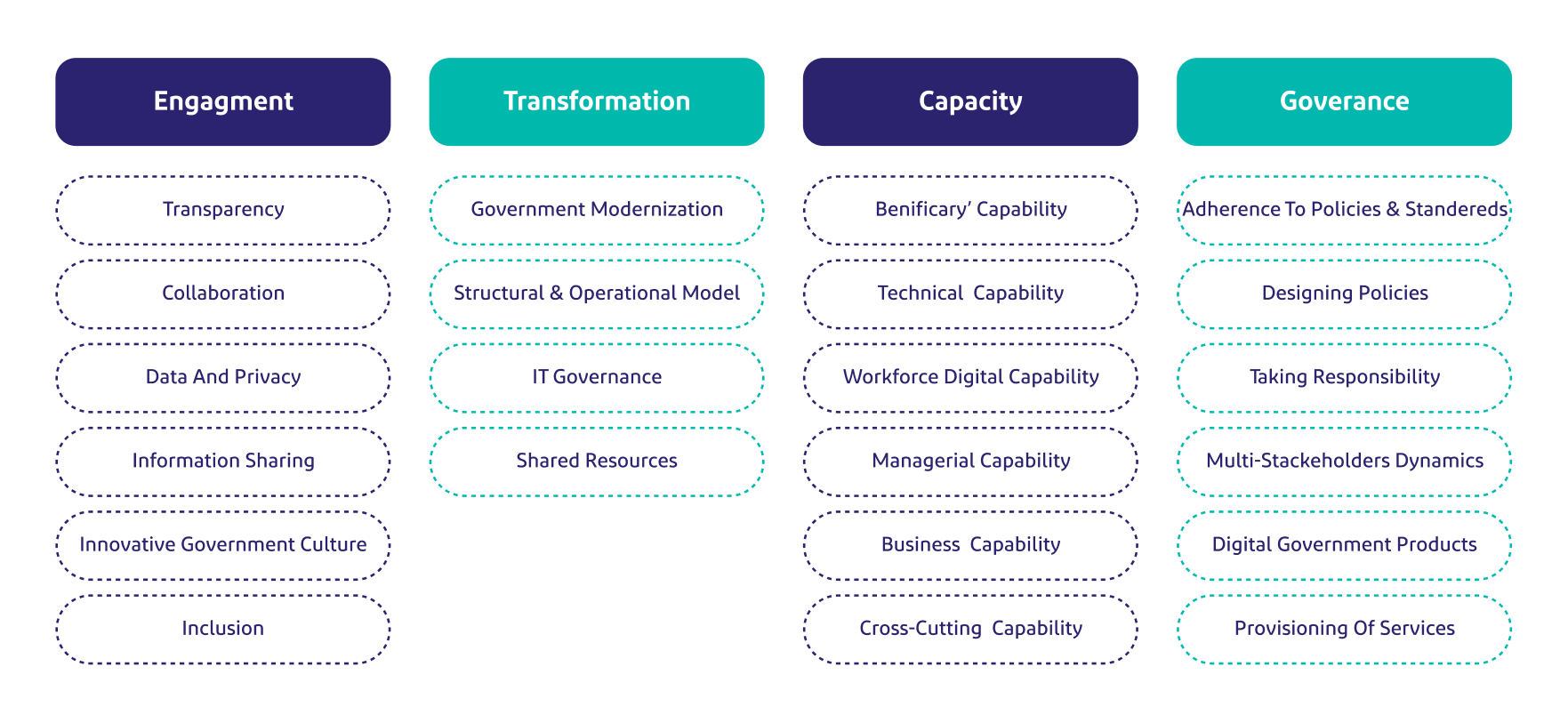Comments & Suggestions
For any inquiries or comments, please fill in the required information.
Loading...
Loading, please wait...
Share The Page
The Digital Government Policy is part of the Digital Government Regulatory Framework and sets the overall direction to achieve sustainable long-term government digital transformation in the Kingdom. The Digital Government Policy supports the development of government entities' strategic plans that are fully aligned with the Digital Government Strategy. It also supports the implementation of such plans.
The Digital Government Policy sets the overall direction to achieve sustainable long-term government digital transformation in the Kingdom. The Digital Government Policy supports the development of government entities' strategic plans that are fully aligned with the National Digital Government Strategy. It also supports the implementation of such plans. Five specialized policies derived from the Digital Government Policy cover critical digital government areas: governance; digital services management; augmenting beneficiaries’ engagement; developing the necessary human capabilities; and adopting modern technologies and methodologies. The DGA leads the Digital Government Policy implementation by developing and publishing standards and procedures, supporting their adoption across the government, and monitoring compliance while collaborating closely with all relevant government entities. That ensures the alignment of digital government across sectors, increases efficiency and optimizes the use of technical resources and investments, all contributing to achieving the Kingdom’s Vision 2030.
The Digital Government Policy aims to:
The Digital Government Policy comprises four pillars:

The transformation includes the enablers that drive the development of government – the main emphasis being on modernization, not technology. Transformation demands an integrated approach to institutional modernization – changes to managerial, organizational, technical, and business processes – that will drive high-quality digital government platforms and services.
The Transformation Pillar is based on the following four principles:
The pillars of engagement and transformation require access to an e-client digital government ecosystem, including the local private sector, that facilitates the much-needed change in government entities. Change and process management overall Capability, as well as technical expertise, is needed to strengthen an enabled government workforce and drive complex transformation processes.
The Capability Pillar comprises six principles:
The governance contributes to the realization of all the principles mentioned above through (1) overseeing and monitoring the adoption of the Digital Government Policy by DGA and other relevant government entities, as well as compliance with standards and procedures published by DGA; (2) encouraging collaboration across the digital government ecosystem; (3) ensuring continuous engagement and communication between government entities driving digital transformation; (4) ensuring policy coherence across government entities, and (5) justifying the costs of government digital services within the government sector.
The Governance Pillar comprises six principles: